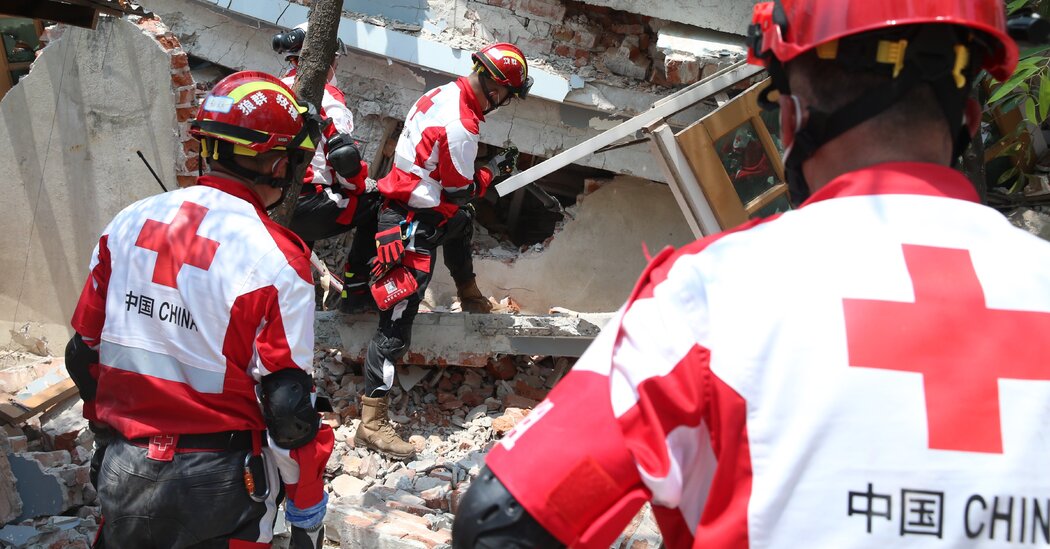Military Attack on Relief Convoy in Myanmar Following Earthquake
In a troubling incident reported by a rebel group in Myanmar, soldiers opened fire on a convoy of vehicles carrying essential relief supplies from the Chinese Red Cross intended for earthquake victims in the severely affected city of Mandalay. This attack marks a grim reminder that the military, which has been in power since a coup four years ago, continues to engage in hostilities amidst an ongoing civil war that has inflicted significant suffering on the populace.
On Tuesday night, Myanmar’s junta chief, Senior General Min Aung Hlaing, issued a statement asserting that military operations would persist as “necessary protective measures,” despite the devastation caused by the earthquake that claimed at least 2,700 lives last Friday.
The convoy faced gunfire from military forces armed with machine guns at approximately 9:21 p.m. in Ummati village, located in Naung Cho township, as it was en route to the central city of Mandalay. The Ta’ang National Liberation Army (TNLA) reported the attack via a post on its Telegram channel, although they did not disclose the number of individuals in the convoy or provide details regarding any casualties.
As a consequence of the assault, the convoy was compelled to retreat back to Naung Cho. The TNLA stated that they intervened to protect the convoy, ensuring that it could proceed with its mission to deliver much-needed aid to those affected by the earthquake.
Both Myanmar’s military and the Red Cross Society of China have not responded to requests for comments regarding this incident. China, maintaining close ties with Myanmar, was among the first nations to respond to the earthquake disaster, deploying search-and-rescue teams and providing approximately $14 million in emergency assistance.
In the aftermath of the earthquake, the National Unity Government, which operates in exile, along with the Three Brotherhood Alliance—comprising three rebel groups including the TNLA—announced temporary cease-fires. However, the military has persisted in conducting airstrikes across various regions of the country.
On Tuesday, around 5:30 p.m., an airstrike reportedly killed 38 young trainees of the Kachin Independence Army (K.I.A.), an armed faction engaged in conflict against the military in northern Myanmar, according to Colonel Naw Bu, the spokesperson for the K.I.A.
While the reasons behind the targeting of the Chinese Red Cross vehicles remain unclear, this incident highlights the chaotic environment and the significant challenges faced in delivering humanitarian aid within a conflict zone. Since the military coup, the Assistance Association for Political Prisoners, an advocacy group, has documented the deaths of 6,476 individuals, including pro-democracy activists and civilians, at the hands of the junta and pro-military groups.
In recent days, international aid organizations such as the World Food Program and UNICEF have begun operations in Mandalay and the adjacent war-torn region of Sagaing—a stronghold of resistance—where desperate communities report severe shortages of food and water. However, local residents have expressed frustration as their efforts to assist with rescue operations have been obstructed by military forces, who have blocked access to collapsed structures and enforced curfews.




